VIPsight - 4th Edition 2016
COMPANIES
Sinner Schrader: Bumper results
 If today’s figures are anything to go by, digital marketing and advertising agency Sinner Schrader AG will close the 2015-16 fiscal year at an all-time high. From its headquarters in Hamburg, the company announced an increase in turnover from 47.7 million Euros to over 51 million with EBITA at 4.5 million. This brings the group profit to more than 3 million Euros, 0.26 Euros per share, marginally higher than the last forecast of July 2016. Together with the publication of the provisional results, the Supervisory Board confirmed having renewed CFO Thomas Dyckhoff ‘s contract for a further five years.
If today’s figures are anything to go by, digital marketing and advertising agency Sinner Schrader AG will close the 2015-16 fiscal year at an all-time high. From its headquarters in Hamburg, the company announced an increase in turnover from 47.7 million Euros to over 51 million with EBITA at 4.5 million. This brings the group profit to more than 3 million Euros, 0.26 Euros per share, marginally higher than the last forecast of July 2016. Together with the publication of the provisional results, the Supervisory Board confirmed having renewed CFO Thomas Dyckhoff ‘s contract for a further five years.
Telecolumbus: low interest costs
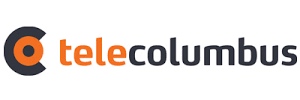 Telecolumbus, Germany’s third-largest cable network, is reaping the benefits of a new credit agreement that was arrived at by negotiating the re-financing, consolation and duration of existing term loans worth 1.255 billion Euros. At the same time its extant credit contract was amended to the tune of 1.38 billion Euros. In a note, Telecolumbus announced that the transaction should come into force at the end of October.
Telecolumbus, Germany’s third-largest cable network, is reaping the benefits of a new credit agreement that was arrived at by negotiating the re-financing, consolation and duration of existing term loans worth 1.255 billion Euros. At the same time its extant credit contract was amended to the tune of 1.38 billion Euros. In a note, Telecolumbus announced that the transaction should come into force at the end of October.
The new agreement extends the duration of the credit contracts to January 2023 and lowers the credit margin of the term loans by 50 base points to 400 base points plus Euribor. Certain terms and conditions of the credit contract were amended, but the duration and interest rates for the existing investments and its total 125 million Euro revolving credit line remain unchanged. This transaction will lower Telecolumbus’s yearly interest liability by 6.3 million Euros.
DBAG: profit forecast exceeded
The Deutsche Beteilungs AG (DBAG) group profit for the 2015-16 fiscal year was significantly higher than had been forecast – available figures indicate somewhere in the region of 48 to 52 million Euros. The reason for exceeding the forecast confirmed on publication of the third quarter results seems to lie in an improvement of the capital market multiplier that DBAG uses to assess its company portfolio. On the 30 September cut-off date, the multipliers were higher than almost every comparison group had been on the previous cut-off date of June 30. According to the company, this could explain how losses were compensated.
The German Mittelstand
Coming together to close the SME innovation gap
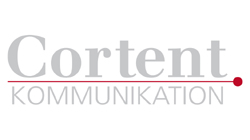
By and large, German SMEs are considered innovative and open to change. This time round, however, studies conducted by the Institut für Mittelstandsforschung (IFM) failed to confirm their acknowledged tradition of being able to deal successfully with innovation. Indeed, a report on innovation of a non-technological nature within SME-generated innovation as a whole (http://www.ifm-bonn.org/uploads/tx_ifmstudies/IfM-Materialien-250_2016.pdf) went so far as to call it the innovation vacuum that emerged from the 2008-9 financial crisis.
In this study, SME experts made use of the most accurate parameters for both the technological and non-technological. In general not subjected to a stand-alone approach but conceived for use in the preparation of novel attributes in technological products their scope is to improve the quality of both product and service. These are important prerogatives that underpin SMEs and without them competing with major industries would be inconceivable. In terms of the end result, there is little difference between tech and non-tech innovation, the capacity for innovation increases only as a function of company growth.
However, the report also brings up an interesting side effect that could pave the way out of the dilemma. When small companies organize themselves into consortia, the innovation vacuum is much less pronounced than when they stand alone. In addition to the benefits of synergy, resources and networks unavailable to small single concerns open up.
This idea has indeed been proved scientifically by reality. GESCO AG, an industrial group made up of leading companies in their respective fields and technology applicable in the investment goods industry, in particular the technology of production processes, resource management, health and safety, and infrastructures including mobility technology sought the effects of this very synergy.
The companies involved maintain their operational autonomy but they benefit from support in the form of controlling, coaching and consulting. This sidesteps the weaknesses of small and mid-size companies but grants them access to their strong points, issues such as speedy decision making, proximity to the market and the highly significant identification of staff with employer.
Togetherness also makes the smaller company strong. In order to enhance the innovative strength of SMEs, the IFM relies less on material help. According to experts it is much more important to create networks for sharing experience and knowledge. This orientation should also be encouraged by coordination on the part of the chambers of commerce with examples of best practice already established.
Buhlmann's Corner
Stumpf – Winterkorn – Ackermann, what do they all have in common?
 All three are CEOs and yardsticks for many (but not all) of their caste, see Samsung for example.
All three are CEOs and yardsticks for many (but not all) of their caste, see Samsung for example.
It is not chance that most of Humpty Dumpty’s greatest falls are in the world of finance (see also Maurice R. Greenberg of the International, US-based Group AIG). There are also, however, many exceptions. Henning Schulte – Noelle resigned in time before Dresdner Bank, his acquisition, became a problem for him and him alone to solve. What does the demise of these white-collar étoiles have in common? What ought the Supervisory Boards be on the look out for, always provided that they are courageous enough and haven’t been infected by the same strain of virus?
To my way of thinking, there is a single unifying factor which also happens to be part of the problem, and that is seniority. All those involved have been with the same company for years and worse still they sat in the top chair at the top table for years and years. When the Club of Florence gets together in 2017 to analyse “things that must never happen”, people like John Stumpf (Wells Fargo), Martin Winterkorn (Volkswagen) and Josef Ackermann (Deutsche Bank) will, instead, be blithely repeating the words “things that could never happen”.
On the wings of seniority they rise to dizzy altitudes, out of touch with the ground and their origins. Sweeping and soaring among the clouds is much more enjoyable than clambering out of the holes of day-to-day business and the humdrum of daily life. This much is nothing new but neither is it inevitable. Herbert Hainer (Adidas) came under sustained fire and notwithstanding certain issues of debatable corporate governance still managed to keep his feet on the ground.
It is undeniable that the onus is on the high-flyers, but by the same token, a measure of responsibility also lies with those who watch from the sidelines, or rather who don’t watch, the Supervisory Boards who gladly pocket their fee instead of demanding to be kept abreast on matters within their bailiwick.
Non-knowledge is part of the system. And in this system, awareness means that part of the blame lies with the staff when they comply with the “turn a blind eye” approach of top managers instead of reporting them. Equally significant if not more so is the odious (but inevitable) comparison of their own existential issues against the annual fees which, in Deutsche Bank for example, run into three-figure millions. Today it is called whistle-blowing. Our elders called it moral fibre, In times gone by it was “doing the right thing”. Whatever the name, the malaise is attributed to cultural shifts.
Where I come from, the net result is that each of the gentlemen mentioned in the title is flaunting a conflict of interests to the detriment (by definition) of third parties, mostly shareholders, and wreaks damage of an ecological (clients, environment) nature. When, as is the case of our three examples, best practice of corporate governance is mortified along with other structural problems the end of the story is nigh. And so it was with our trio.
John Stumpf lived an existence in the top tier board totally unchallenged. He spent decades in the company, and decades as its head, covered by Tim Sloan a colleague whose CV was identical to his own, and who eventually succeeded him. The run-down state of his office was proverbial – I couldn’t say for sure because unlike the other two I never went to see him. One thing is certain . If I had, I would have searched for his real office. And I’m willing to bet that I would have found it!
For years Martin Winterkorn lived in the shadow cast by VW proprietor Ferdinand Piech who not only lost touch with reality but vanished into thin air. He deserves top marks for razor-sharp intuition though – his disappearing act took place only a few short weeks before the company’s nosedive. Winterkorn’s role has been akin to the Pope’s namely the only way for peoples of the earth to communicate with a god in the heavens possessive of his family’s partly state-owned company: Volkswagen.
Josef Ackermann put together a best practice initiative with his bare hands, the Global Executive Committee (GEC), that turned out to be a catastrophe for Deutsche Bank. Every transparent (or non transparent) step in decision making became unsubstantial, relegated to concealment behind the façade that the manag ement board provided with the self-castrating blessing of the Supervisory Board and the few remaining management board members. Only two of them, Ulrich Cartellieri and RainerNeske put up some kind of resistance and then they, too, left. Cartellieri was on the Supervisory Board from 1997 to 2004 and is credited with the famous remark “we always thought we would be able to keep it under control.”Neske sat on the GEC from 2003 to 2009 and then on the management board before resigning after the debate on an issue that has still not been settled and on which everyone was pitted against him. The real issue seems to be how exactly does Deutsche Bank define the word “clear”.
As regards the world’s most liquid side issue, the various players are still far apart. One cashes in at his contract expiry date, another asks for a golden handshake, while the American relinquishes a quarter of his income of 35 years in banking by saying no to stock options.
This, too,is bizarre. Whether or not its CEO relinquishes or not, Wells Fargo has been served a fine of 185 million dollars, the same figure only 25 times lower than delivered on Siemens (whose fine includes accessory costs) Deutsche Bank (still running) is expected to be 50 times higher while Volkswagen can consider itself lucky if (for the few cars sold in the USA) it gets away with paying 100 times the amount of the American company. The sums don’t add up and there’s more than a whiff of bureaucrat revenge. And that’s something that can’t be allowed!
People
SAF-HOLLAND: New CFO
 Heavy goods vehicle manufacturer SAF HOLLAND will have a new CFO effective 1 March 2017. Dr. Matthias Heiden will replace Wilfried Trepels who is taking up an appointment with Wacker Neuson. Heiden rose through the ranks of SAP where he was in charge of company finance in central and eastern Europe. In the interim the position will be held by Dr. Martin Kleinschmitt.
Heavy goods vehicle manufacturer SAF HOLLAND will have a new CFO effective 1 March 2017. Dr. Matthias Heiden will replace Wilfried Trepels who is taking up an appointment with Wacker Neuson. Heiden rose through the ranks of SAP where he was in charge of company finance in central and eastern Europe. In the interim the position will be held by Dr. Martin Kleinschmitt.
Sartorius: CFO handover in 2017
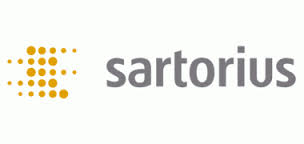 Pharmaceutical supplier Sartorius will lose its CFO Jörg Pfirrmann in 2017. He will not renew his contract on its expiry date in July 2017 but intends instead to explore new professional challenges. Prior to his appointment to the management board, Pfirrmann had already worked for Sartorius’s financial division for ten years. The company is actively seeking a replacement.
Pharmaceutical supplier Sartorius will lose its CFO Jörg Pfirrmann in 2017. He will not renew his contract on its expiry date in July 2017 but intends instead to explore new professional challenges. Prior to his appointment to the management board, Pfirrmann had already worked for Sartorius’s financial division for ten years. The company is actively seeking a replacement.
Deutsche Rohstoff: lateral mobility
A new board of management is taking shape in entry standard listed Deutsche Rohstoff AG. In future, Thomas Gutschlag will dedicate his energies to the position of CEO and with effect from 1 January 2017 will transfer responsibility for financial affairs – which up to now he had managed in parallel – to Jan-PhilippWeitz, presently still in charge of Business Development. Communication with the capital markets will still be managed by CEO Gutschlag. The present CTO Jörg Reichert is leaving the board of management at year’s end and according to the company will be in charge of Ceritche AG, of which Deutsche Rohstoff is the majority shareholder.
Capital News
Wacker: higher dividend
 WackerChemie chose a conference on the capital markets in Munich to announce that it intends increasing shareholder participation in the company’s successes by distributing half of the annual profit figure. Up to now, the percentage distributed has been a mere 25 percent.
WackerChemie chose a conference on the capital markets in Munich to announce that it intends increasing shareholder participation in the company’s successes by distributing half of the annual profit figure. Up to now, the percentage distributed has been a mere 25 percent.
Shop Apotheke: IPO successfully accomplished
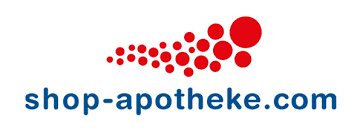 Shop Apotheke Europa, online pharmaceutical trader, has made a successful launch on the Frankfurt Bourse. A total of 4 million shares were placed at 28 Euros each. Approximately half a million shares came from existing shareholders and the remaining three and a half million are new shares the result of an increase in share capital. The issuance accrued a revenue of 100 million Euros for the company. Based on the issuance price, the company is worth 254 million Euros. Shop Apotheke intends to make use of this revenue to open new markets, especially in southern Europe, and to streamline logistics by automation. The company is originally German but its headquarters are now in The Netherlands.
Shop Apotheke Europa, online pharmaceutical trader, has made a successful launch on the Frankfurt Bourse. A total of 4 million shares were placed at 28 Euros each. Approximately half a million shares came from existing shareholders and the remaining three and a half million are new shares the result of an increase in share capital. The issuance accrued a revenue of 100 million Euros for the company. Based on the issuance price, the company is worth 254 million Euros. Shop Apotheke intends to make use of this revenue to open new markets, especially in southern Europe, and to streamline logistics by automation. The company is originally German but its headquarters are now in The Netherlands.
Paragon: new shares
La Prime-Standard-listed Paragon has obtained fresh capital. An increase in cash capital raised 13.4 million Euros with the placement price set at 32.50 Euros per share, 3.85 percent lower than the previous day’s Frankfurt bourse closing price (XETRA). The offer was oversubscribed 3.5 times. A total of 411,478 new shares were placed with qualified investors and with the majority shareholder and company founder, management board member Klaus Dieter Frers. The revenue must be used to sustain growth above all in electromobility and for continuing to underpin a solid balance sheet. The capital increase was managed by Hauck&Aufhäuser.
M & A
Alno: takeover offer
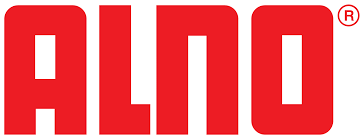 There is light at the end of the tunnel for kitchen manufacturer Alno. Investment company Tahoe who already owns part of the company has applied for a guarantee to gain access to 33.25% of company stock presenting a takeover bid . The shareholders should receive 0.50 Euros per share. Experts believe that company indebtedness cannot be cancelled by the revenue from current business. Burdened with expenses for restructuring and trade shows Alno performed poorly in the first half year slipping ever more toward a loss.
There is light at the end of the tunnel for kitchen manufacturer Alno. Investment company Tahoe who already owns part of the company has applied for a guarantee to gain access to 33.25% of company stock presenting a takeover bid . The shareholders should receive 0.50 Euros per share. Experts believe that company indebtedness cannot be cancelled by the revenue from current business. Burdened with expenses for restructuring and trade shows Alno performed poorly in the first half year slipping ever more toward a loss.
Wimdu and 9flats: co-habitation
Two German startups have joined forces in a move aimed at curbing the activity of a gigantic American competitor. Wimdu and 9flats, both online agencies for providing apartment accommodation for tourists are challenging Airbnb. Wimdu began from the portfolio of listed company Rocket Internet and 9flats is an offshoot of a venture capital subsidiary of Deutsche Telekom. The joint posted turnover of the two companies is in the order of 10 million Euros with a portfolio of 500,000 private apartments throughout Europe. The company’s headquarters will be in Singapore.
Capital Stage takes over the competition
Capital Stage, specialist in solar and wind farms has purchased over 94% of the entire shareholding of competitor Chorus Clean Energy. A spokesperson for Capital Stage announced that no existing shareholder squeeze-out is envisaged at this time. The transaction raises Capital Stage to candidacy on MDax listing. Combined, the two companies manage almost 150 solar and wind farms in six different countries.














